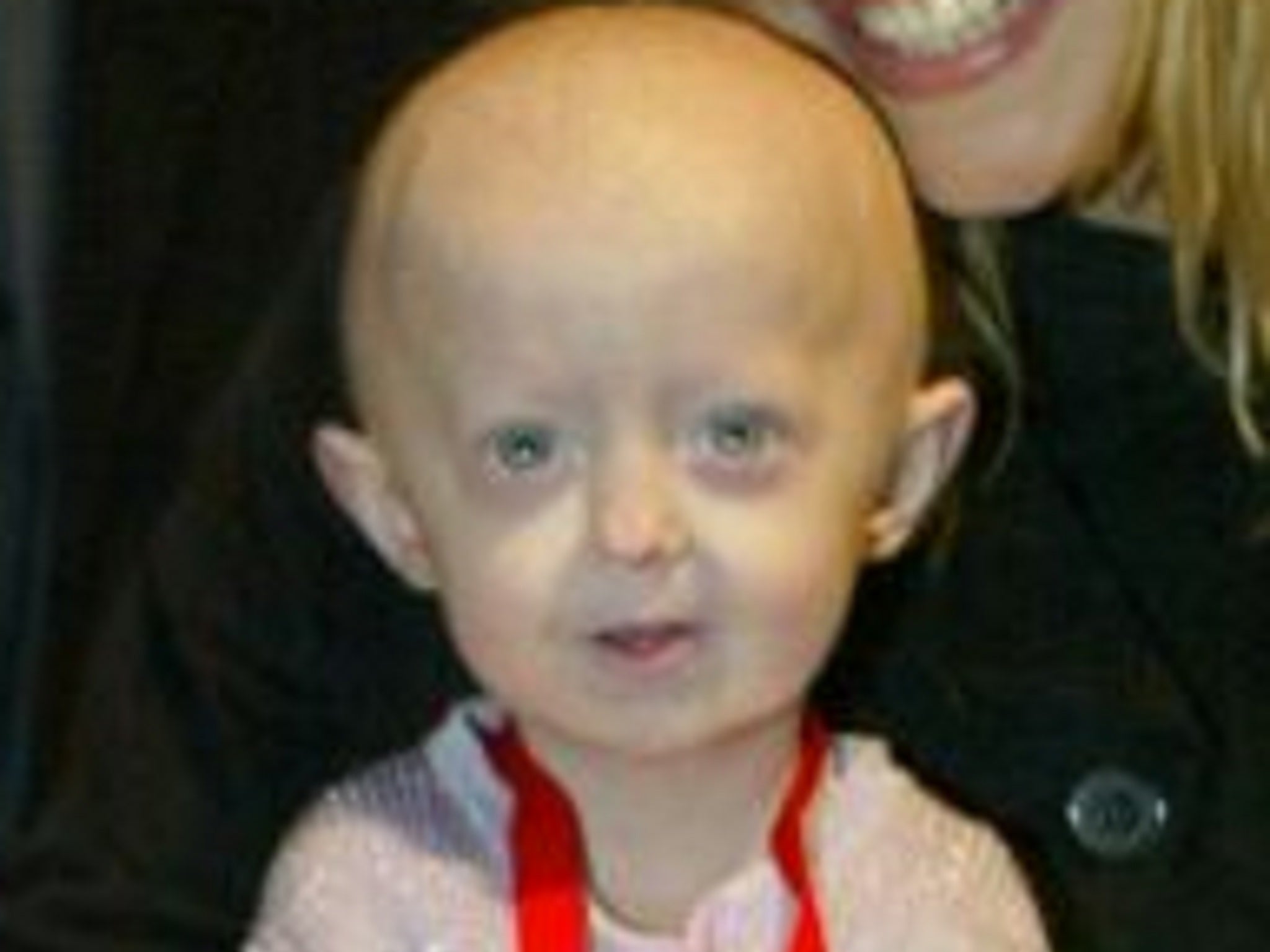Hutchinson-Gilford Progeria Syndrome: What is it and how does it affect those with the disorder?
Hayley Okines died four years after her 13-year life expectancy

Your support helps us to tell the story
From reproductive rights to climate change to Big Tech, The Independent is on the ground when the story is developing. Whether it's investigating the financials of Elon Musk's pro-Trump PAC or producing our latest documentary, 'The A Word', which shines a light on the American women fighting for reproductive rights, we know how important it is to parse out the facts from the messaging.
At such a critical moment in US history, we need reporters on the ground. Your donation allows us to keep sending journalists to speak to both sides of the story.
The Independent is trusted by Americans across the entire political spectrum. And unlike many other quality news outlets, we choose not to lock Americans out of our reporting and analysis with paywalls. We believe quality journalism should be available to everyone, paid for by those who can afford it.
Your support makes all the difference.A British girl with progeria – who is also known as the “100-year-old” teenager – has died aged 17.
Hayley Okines, from Bexhill-on-Sea in East Sussex, died last night after years of campaigning to raise awareness of the incredibly rare disease that rapidly aged her body to that of a centenarian at the beginning of her teenage years.
Her mother Kerry announced her death to the world last night via Facebook. She wrote: “My baby has gone somewhere better. She took her last breath in my arms at 9.39pm.”
Hayley sought to lead a full life, despite having been given a life expectancy of 13 years. She made numerous media appearances, wrote an autobiography and travelled to the US for pioneering drug treatment that gave her a new lease of life.
Her condition deteriorated after she contracted pneumonia, four years after she was expected to lose her life.
What is progeria?
Hutchinson-Gilford progeria syndrome is a rare genetic disorder that people are born with that makes them age eight times faster than normal.
It is currently deemed as incurable.
What are the symptoms of the disease?
Those with the condition die of heart disease in their early teenage years, when it would usually affect adults in their mid to old age.
Other symptoms include loss of hair, lack of growth and loss of body fat. Mutant protein progerin causes the accelerated ageing.
How many people have progeria?
There are not more than 100 children in 43 countries that live with progeria, according to the Progeria Research Foundation.
Now, there are three known cases of children with the disease in the UK.
Join our commenting forum
Join thought-provoking conversations, follow other Independent readers and see their replies
Comments